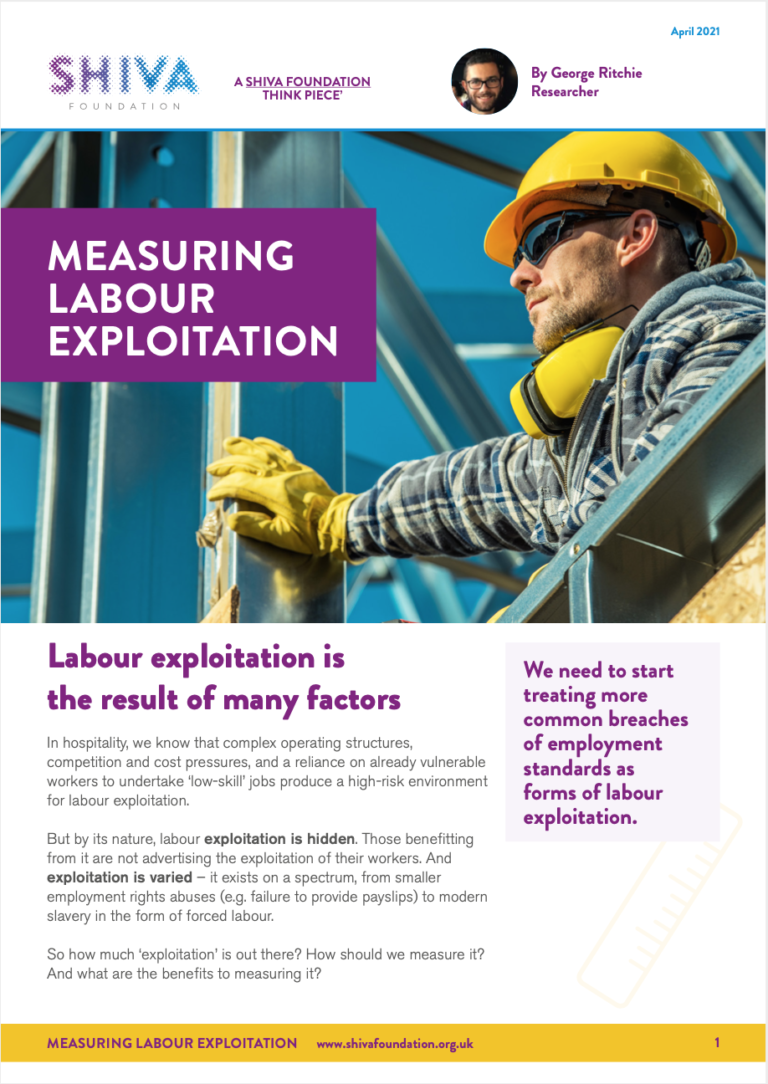The Shiva Foundation proposes that business, government, and civil society organizations look beyond modern slavery when trying to assess the prevalence of labour exploitation in the UK. They suggest a few metrics that might help track labour exploitation in the UK, including non-compliance with National Minimum Wage, employment tribunal applications and holiday pay avoidance by firms. Also, they argue that keeping tabs on macroeconomic trends that reflect vulnerability to exploitation (e.g. unemployment, household debt, rough sleeping) can help predict upticks in labour exploitation and shape a response.

